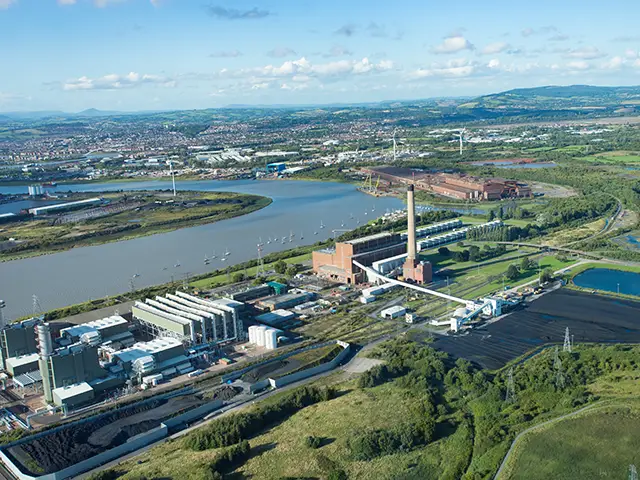Support quality, independent, local journalism…that matters
From just £1 a month you can help fund our work – and use our website without adverts. Become a member today

A third battery energy storage site has been approved for the former Uskmouth Power Station in Newport.
City councillors have backed a project which will reportedly help with power grid stability for between 40 and 50 years.
At a planning committee meeting, members heard the site will first need to be cleared of around 140,000 tonnes of “pulverised fuel ash” – a remnant of its previous coal-fired power generation.
It will take around 15 months to remove the ash from a reinforced concrete structure at the site, and transport it by road to another location in the UK for “the manufacture of construction products”.
Work is already under way on two other battery energy storage systems at the Uskmouth site, and a council report indicates an application for a fourth facility is “anticipated in due course”.
Their purpose is to store electricity during off-peak periods of low demand, and then release that electricity back into the grid when demand is higher.
According to the council report, this technique of energy storage “can allow significant increase in intermittent renewable generation from wind and solar onto the electricity system by enhancing the balance of supply and demand”.
Case officer Joanne Davidson said the Uskmouth site is “very well-placed to accommodate” battery energy storage sites, and added the proposals have “significant merit in planning terms”.
Paul Hebbard, a commercial director at Ampeak Energy, spoke in favour of the project, telling the committee “the site that once powered communities through coal now stands ready to power the future through clean, sustainable energy”.
He said the two previously-agreed storage sites were worth a combined £217 million and would be operational by early 2027.
The new proposal would “build on the momentum and further enhance the site’s contribution to the UK’s energy resilience”, he argued.
However, committee member Jason Jordan noted a lengthy objection from Severn Power, which operates a power station to the north of the application site.
In their “strong” objection to the latest battery plans, they raised concerns about “fire and explosion risk” and “toxic chemicals”, the council report showed.
Nash Community Council lodged separate concerns about “high volumes” of lorries travelling to and from the site to complete the removal of the fuel ash.
“We’ve got wildlife around the corner in the wetlands area, which is a bit concerning,” said Cllr Jordan. “If this does happen and causes a fire, it’s a danger.”
Ms Davidson claimed “the objection from Severn Power is quite alarmist”, and said the applicant had provided a “technical rebuttal” from a safety specialist.
“Risk of battery fires is very low – no-one is saying there’s no risk at all, but the point from our perspective is to reduce that risk as much as we reasonably can”, she explained.
“This sector is evolving rapidly – safety is improving rapidly”, Ms Davidson said, and added the fire service’s response to the application “raises no objection”.
The committee voted to grant planning permission, subject to conditions.
Support quality, independent, local journalism…that matters
From just £1 a month you can help fund our work – and use our website without adverts.
Become a member today
